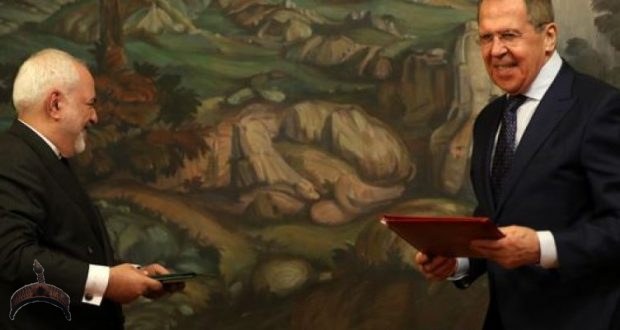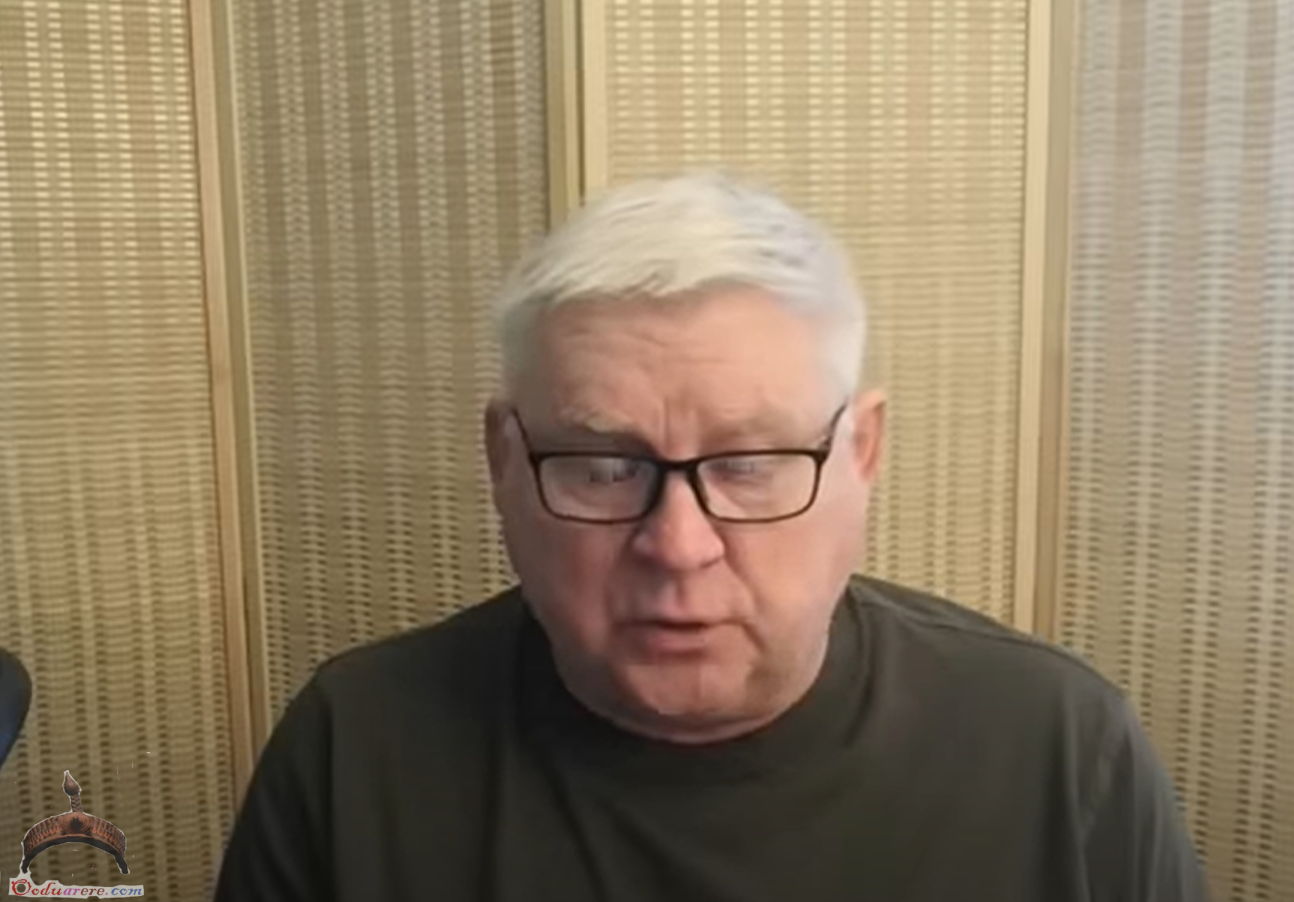16 June 202017:32
Foreign Minister Sergey Lavrov’s statement and answers to media questions at a joint news conference following talks with Minister of Foreign Affairs of Iran Mohammad Javad Zarif, Moscow, June 16, 2020
Ladies and gentlemen,
The meeting with my colleague, Minister of Foreign Affairs of Iran Mohammad Javad Zarif, was as constructive and substantive as ever.
We thoroughly reviewed the current state of and outlook for Russian-Iranian relations and agreed that our political dialogue has remained strong even in the context of the coronavirus infection, especially at the highest level. In February and April, President of Russia Vladimir Putin and President of the Islamic Republic of Iran Hassan Rouhani spoke by telephone and discussed the state of bilateral cooperation and the prospects for further cooperation in regional and international affairs.
Today we agreed that our trade and economic ties are developing vigorously, despite, and contrary, to the unilateral sanctions and Iranophobia the United States is fanning. Washington’s goal is clear to us – they are trying to intimidate other countries and blackmail them into ending legitimate cooperation with Iran. In Russia’s view – which is supported by the absolute majority of the members of the international community – this policy runs counter to international law and the principles of free trade, and is a manifestation of flagrant unfair competition.
We agreed to combine efforts to maintain stable growth in bilateral trade and noted expeditious progress on several large projects that were approved or outlined during a regular meeting of the bilateral Intergovernmental Commission on Trade and Economic Cooperation in Isfahan last summer. We are now making preparations for the next meeting to be held in Russia this year.
We welcome Russian regions’ interest in expanding cooperation with Iran and plan to strongly encourage it.
We also approve the interaction developing between Iran and the Eurasian Economic Union (EAEU).
We note a unanimity or proximity of positions on key global and regional issues. In particular, we have both expressed support for strengthening the legal framework for interstate communication enshrined in the UN Charter, reaffirming that it is unacceptable to interfere in the internal affairs of sovereign states.
We discussed the situation with the Joint Comprehensive Plan of Action (JCPOA) on the Iranian nuclear program. Despite the frankly destructive policy pursued by the United States, we agreed on the importance of keeping this agreement as a major factor in maintaining international security.
We exchanged views on the Syrian peace process and reaffirmed our shared position that the agreements reached in the Astana format have no alternative, in particular, the antiterrorist component along with unconditional respect for Syria’s sovereignty and territorial integrity. We discussed the need to stabilise the situation on the ground, to continue Syria’s post-conflict recovery, to facilitate the return of Syrian refugees and IDPs and provide humanitarian assistance to the people that need it.
Together with our Iranian friends, we will continue to coordinate our approaches in Afghanistan with a view to achieve, as soon as possible, the launch of peace processes such as national reconciliation, and restoration of a peaceful and independent Afghanistan, a country that would pose no threat of terrorism, drug trafficking or other threats.
Today we are signing an important document – the Declaration of the Russian Federation and the Islamic Republic of Iran on enhancing the role of international law. We consider this declaration highly relevant in the context of a number of countries making constant attempts to promote the flawed concept of a “rules-based international order,” which undermines the cornerstones of justice and mutual respect that our predecessors laid as the foundations for international law and the UN Charter.
In general, I believe our meeting has been very timely. I thank my colleague and friend for accepting our invitation and coming to the Russian Federation for this very productive conversation.
Question (retranslated from Farsi): Mohammad Javad Zarif mentioned the United States’ efforts to renew the arms embargo on Iran by pressuring the UN and the IAEA Board of Governors. How would you describe US actions in this area? What can Russia and Iran do together within international organisations to counter the United States’ unfair and illegal actions?
Sergey Lavrov: The Joint Comprehensive Plan of Action (JCPOA) to settle Iran’s nuclear issue and UN Security Council Resolution 2231, which approved it, are a single whole.
When our American colleagues officially terminated their participation in the JCPOA through respective instructions and executive orders, they also forfeited the signatory countries’ opportunities and rights that are based on honest compliance with the JCPOA and sealed in Resolution 2231. While trying to prevent the other JCPOA countries from fulfilling their obligations to Iran, the United States also wants to punish Tehran by promoting illegal and absolutely unjustified initiatives, including those related to the arms embargo. I believe that this is a futile attempt and that it has no future in the context of international law. We are using every available opportunity offered by international law to ensure that justice is served.
The entire set of obligations of Iran and the other JCPOA countries are an integral whole. This package cannot be divided, leaving only Tehran’s obligations and trying to prevent Europe, Russia, China and all the other countries from maintaining legitimate trade and economic ties with Iran. I am sure that this is obvious to anyone who has even the most rudimentary knowledge of international law.
I can assure you that we will do everything in our power to prevent the destruction of the agreements incorporated in the JCPOA. If the plan does not fit in with the logic of the current US administration, which considers it to be a “bad deal,” it has a right to think so. But Washington has no right to punish Iran by speculating on the authority of the UN Security Council or trying to gain leverage over it, as well as, to a degree, over the UN Secretariat. The latest report of UN Secretary-General Antonio Guterres on the implementation of Resolution 2231 goes well beyond the competence of the UN Secretariat in that matter. And the fact that the report was leaked to the Western media almost simultaneously with its publication gives rise to many questions, the same as the report of IAEA Director General Rafael Grossi, which has been illegally leaked to the media even though the IAEA Board of Governors is still discussing it.
In my opinion, such actions are designed to create pretexts that can justify wrongful attacks on Iran. I believe that those who orchestrate, encourage and initiate such attacks are acting unscrupulously and extremely dishonourably.
Question: Mr Lavrov, have you received any response to your letter to UN Secretary-General Antonio Guterres and the UN Security Council members, in which you urged them to prevent the Americans from using the available mechanism to reintroduce tough sanctions against Iran? Does Russia believe that the JCPOA countries, in particular the UK, will act together to disrupt the US plans?
Sergey Lavrov: I have not yet received an answer to the letter I sent to UN Secretary-General Antonio Guterres or the letter to the President of the UN Security Council for distribution among the member countries. I believe that the arguments put forth in the letter are quite serious. The letter is five pages long. I hope they are analysing the letter and that the substantiated arguments and facts included in it will be thoroughly scrutinised and supported.
I cannot vouch for the other JCPOA countries, primarily the European countries which are being pressured by the United States, whose pressure includes unfair methods such as threats in the spheres of trade and economic cooperation, as well as in other areas of ties between NATO countries. It is a fact obvious to everyone that those who are siding with the United States, even if partially, have no legitimate arguments to justify their actions. I am sure that regardless of whether any more JCPOA countries decide to stand up against the US plans, these plans will not be implemented because they have no grounds in international law.
Question (retranslated from Farsi): Mr Lavrov, when will the borders be reopened? Businesses and tourists are sustaining huge losses because of the closed borders.
Sergey Lavrov: The issue of relaunching ties in trade, the economy, as well as in culture, tourism and other spheres is beyond the purview of the Foreign Ministry. It would be irresponsible on our part to assume the powers of the agencies that are responsible for the nation’s epidemiological safety.
Today we have an opportunity to hold a meeting in person, but with due regard for the safety measures. As for when this regime becomes standard again, this depends on the epidemiological authorities.
Question: Will the next Astana summit be held before the resumption of the meetings of the Constitutional Committee that were announced by your colleague, Turkish Foreign Minister Mevlut Cavusoglu, during yesterday’s news conference with Iranian Foreign Minister Mohammad Javad Zarif? What is the impact of Russia’s successful peacekeeping experience in Syria on the situation in Libya?
Sergey Lavrov: Today we reaffirmed the agreement between the three presidents of the Astana format that the next summit will be held in Tehran within a timeframe that will be determined by a number of factors including the evolving situation regarding the coronavirus infection. We supported the proposal to hold a videoconference before the in-person meeting of the three leaders. We will agree on its date fairly quickly and make an announcement.
It is quite safe to say that the videoconference with the three leaders will be held before the UN Secretary-General’s Special Envoy for Syria Geir Pedersen convenes the drafting group of the Constitutional Committee.
As for applying our experience of peacekeeping in Syria to other countries in the region, I think this is a possibility. The essence of our experience is a very simple truth: one needs to involve all parties to the conflict, encourage them to get together, sit down at the negotiating table without any artificial preconditions, and begin to negotiate.
We followed this line from the start both in the Syrian crisis and in our steps to support the Libyan settlement. Unfortunately, in the early stages of the Libyan conflict, when the UN Security Council considered and adopted appropriate decisions back in 2015, various external players tried to promote the interests of one Libyan side to the detriment of the other. As a result, all the agreements, and conferences held in different countries were unsuccessful.
I do hope this experience will be taken into account by the participants in the Berlin conference on the Libyan settlement, which has after all developed approaches approved by all external players. All that is left to do is to convince the parties in Libya that they should sit down and begin to talk. We are now doing just that, also in contact with our Turkish colleagues, as was recently announced.
https://www.mid.ru/en_GB/foreign_policy/news/-/asset_publisher/UdAzvXr89FbD/content/id/4166214
 Ọmọ Oòduà Naija Gist | News From Nigeria | Entertainment gist Nigeria|Networking|News.. Visit for Nigeria breaking news , Nigerian Movies , Naija music , Jobs In Nigeria , Naija News , Nollywood, Gist and more
Ọmọ Oòduà Naija Gist | News From Nigeria | Entertainment gist Nigeria|Networking|News.. Visit for Nigeria breaking news , Nigerian Movies , Naija music , Jobs In Nigeria , Naija News , Nollywood, Gist and more









